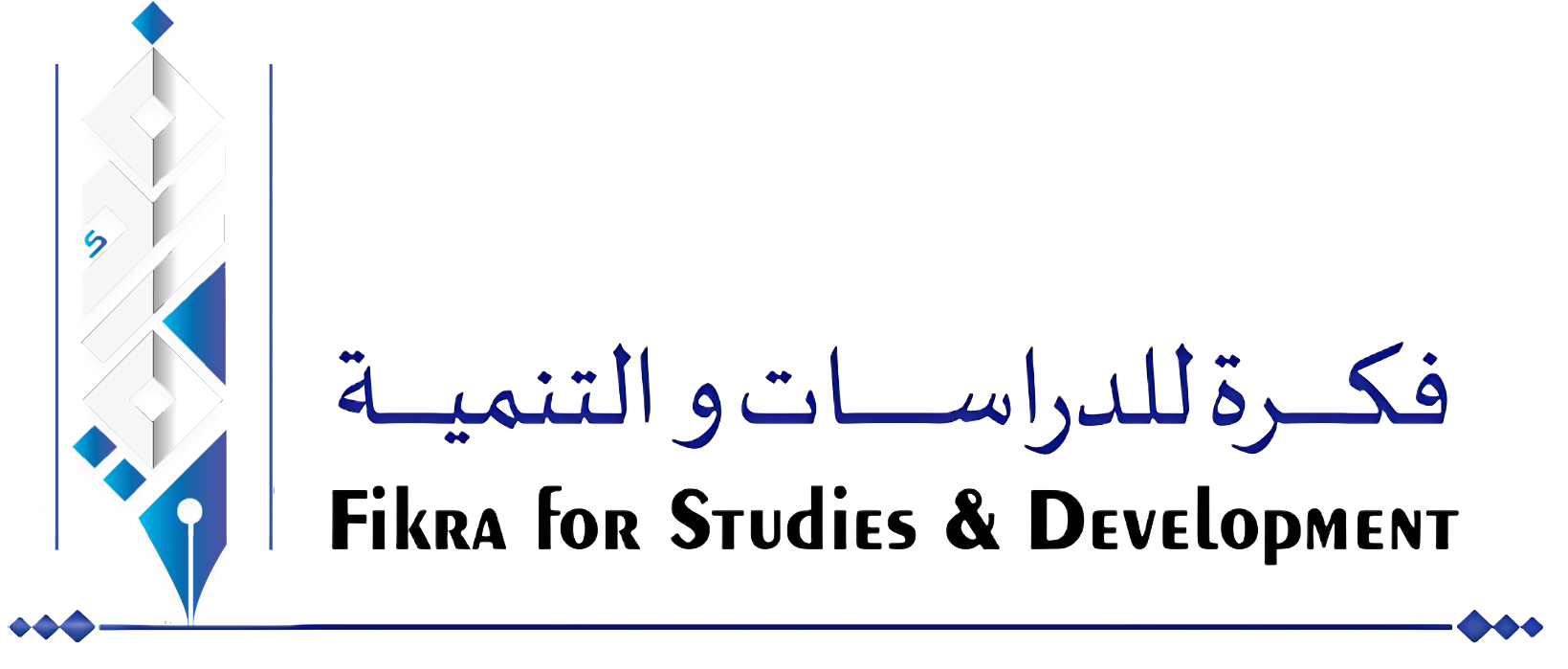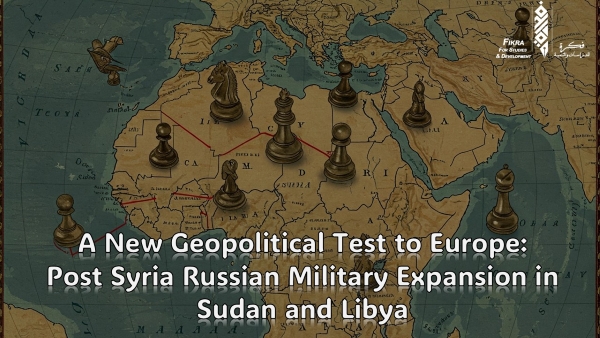A New Geopolitical Test to Europe: Post Syria Russian Military Expansion in Sudan and Libya
A New Geopolitical Test to Europe: Post Syria Russian Military Expansion in Sudan and Libya
Amgad Fareid Eltayeb
Russia’s efforts to establish and consolidate a military foothold in Libya and Sudan have gained increasing significance in light of recent geopolitical shifts, particularly following the developments in Syria and the fall of Bashar al-Assad’s government. The collapse of Assad’s regime has dealt a severe blow to Moscow’s military posture in the region, leading to the potential loss of its most critical bases outside its immediate sphere of influence—the Tartus naval facility on the eastern Mediterranean coast and the Hmeimim airbase near Latakia, which was established in 2015.
Despite Kremlin assertions about its willingness to engage with the new authorities in Syria to maintain control over these strategic assets, the likelihood of retaining them appears increasingly uncertain. Russia had previously secured an agreement with the Syrian government in 2017, granting it the right to expand and modernize the Tartus base while using it free of charge for a renewable 49-year period. This facility has been instrumental in projecting Russian power in the Middle East and serving as a logistical hub for Moscow’s expanding military presence in Africa.
Recent satellite imagery, verified by multiple sources including the BBC, indicates that by the end of January, Russia had begun withdrawing military equipment and heavy weaponry from both Tartus and Hmeimim. This development underscores a potential shift in Moscow’s strategic calculus, raising critical questions about the reallocation of its military assets and its broader ambitions in Africa.
A Renewed Spotlight on Russo-Sudanese Ties
Remarks delivered by Sudanese Foreign Minister Dr. Ali Yusuf during a press conference in Moscow in the second week of February 2025 have reignited discussions on the burgeoning rapprochement between Sudan and Russia, spotlighting its geopolitical ramifications for the Red Sea region. Responding to queries about the status of negotiations for establishing a Russian military base on Sudan’s Red Sea coast, Dr. Yusuf responded in a concise yet portentous affirmation, “We are in complete agreement on this matter, and there are no obstacles… no obstacles at all, we are fully aligned,” before concluding with an enigmatic, “I have nothing further to add on this topic.” Though brief, these remarks have rekindled speculation and heightened apprehension among stakeholders about the progress of negotiations and the potential operationalization of a Russian naval facility in Sudan’s red sea coastline. The Red Sea is a vital conduit for over 12% to 15% of global maritime trade, including 40% of trade between Asia and Europe, 30% of global container shipping traffic relies on the Red Sea route, with nearly 19,000 vessels transiting the Suez Canal each year, approximately 12% of the world’s seaborne oil trade and 8% of global liquefied natural gas (LNG) shipments. Disruptions in this route—such as those seen recently with Houthi attacks—can lead to significant delays and cost increases, with rerouting around the Cape of Good Hope adding up to $1 million in fuel costs per round trip and extending shipping times by 10-14 days. Nevertheless, it remains a fiercely contested arena among major powers, with no internationally or regionally agreed-upon governance framework, rendering the proposed base a subject of sustained international attention.
This concern is amplified by Sudan’s ongoing civil war—pitting the Sudanese Armed Forces (SAF) against the Rapid Support Forces (RSF)—and the prospective international pressures, particularly from Western capitals, that Sudan may face should it deepen its alignment with Moscow. The minister’s restrained tone likely reflects a deliberate effort to withhold sensitive details amid a volatile political landscape but it was enough to fuel the concerns.
Russia’s Dual Engagement in Sudan’s Conflict
Russia has adeptly maintained parallel relationships with both warring factions in Sudan’s conflict, exemplifying its pragmatic geopolitics. Formal ties with the Sudanese government in its provisional capital of Port Sudan are sustained through arms sales, diplomatic exchanges, and reciprocal visits. Simultaneously, Moscow has cultivated a robust partnership with the RSF, led by Mohamed Hamdan Dagalo (Hemedti) via its semi-governmental Wagner Group. This dual engagement includes direct combat support from Wagner Group operatives—rebranded as the Africa Corps following Yevgeny Prigozhin’s death in August 2023—alongside tactical assistance, fuel provisions, equipment, and surface-to-air missiles supplied to the RSF via Libya and the Central African Republic, where Russia exerts significant influence. The enduring aspiration to establish a naval base on Sudan’s Red Sea coast has consistently anchored Moscow’s strategic engagement with Khartoum.
Origins and Evolution of the Naval Base Project
The Russian naval base project in Sudan traces its origins to a 2017 agreement forged during a visit by then-Sudanese President Omar al-Bashir to Russia. In a summit with President Vladimir Putin in Sochi, Bashir explicitly requested Moscow’s protection against perceived U.S. belligerence, while providing Sudan as a gateway for expanding Russian influence across Africa and the Red Sea. The resulting agreement envisioned a logistical naval facility on Sudan’s Red Sea coast, designed to permanently host four nuclear-powered warships and a ground crew for operational support, thereby amplifying Russia’s military presence in the region.
Since then, Russian influence in Sudan has steadily expanded. Militarily, cooperation has deepened with the overt deployment of Wagner/Africa Corps personnel. Economically, Moscow has entrenched itself in Sudan’s gold sector. Firms like Kush Exploration and Mining secured concessions in Red Sea State’s Block 30, establishing the Al-Ittihad gold processing plant with the Sudanese government with the capacity to process 200,000 metric tons of gold tailings annually. In 2017, Kush’s operations grew through a partnership with Al-Junaid, owned by Hemedti’s family, securing concessions across 14 additional blocks. Another Russian company; Siberia obtained exploration rights in Red Sea and River Nile states under Bashir’s regime. Further agreements in 2017 granted Kush additional concessions, while M Invest—Wagner’s investment arm—acquired similar privileges.
In 2018, M Invest founded Merowe Gold, which enjoyed exceptional exemptions and privileges under Bashir’s regime, including a presidential license to process gold tailings despite laws banning foreign companies of this. The government relinquished its 30% stake in Block A3 (Jebit) to Merowe Gold, alongside rights in South Kordofan, River Nile, Red Sea, and other blocks. Merowe Gold diversified into agriculture, oil production, and mining waste processing, leveraging its influence. In Bashir’s final days, he ordered the transfer of Red Sea State gold mining shares to the company. To evade sanctions, firms like Sulaj and Merowe Gold swapped assets, while joint mining sites flew an antiquated Soviet flag under heavy guard. Kush formalized an RSF pact to suppress local protests against mining’s environmental and economic fallout, securing Russia’s interests.
By 2021, the Wagner-RSF partnership peaked, orchestrating 16 Russian flights smuggling Sudanese gold via Syria’s Latakia airport to Chkalovsky airbase near Moscow. Conducted by Russian military aircraft, these operations bolstered Russia’s central bank reserves, supporting its Ukraine war, which intensified in February 2022.
Russia’s Reaction to Sudan’s Political Upheaval
This expanding influence spurred Russia’s public dismay at the 2019 popular uprising that toppled Bashir. Andrei Klishas, head of the Russian Federation Council’s Constitutional Legislation Committee, condemned it as a “violent and unconstitutional change of power.” This aligned with the revolutionary government’s freezing of the naval base deal and westward pivot, disrupting Russia’s plans. Moscow patiently rebuilt its leverage, achieving success after the October 2021 coup, in which the SAF and RSF jointly ousted the transitional government—only for hostilities to erupt in April 2023. Post-coup, both commanders endorsed the Russian base project, realigning with Moscow.
Competing Interests in the Red Sea
Russia is not alone in its ambitions along Sudan’s 750-kilometer Red Sea coastline. The UAE secured a post 2021 -coup deal to develop Abu Amama Port, pledging $6 billion via Abu Dhabi Ports and Invictus Investment, tied to Sudan’s UAE-favoured Dal Group, but it was canceled in 2023 amid war-related tensions and the UAE support for the RSF. Turkey seeks to revive a 2017 accord to operate Suakin Island as a base, stalled since Bashir’s 2019 ouster but now under reconsideration.
Libya: A Parallel Theater of Intensified Russian Ambition
Russia’s quest to replace these losses extends prominently to Libya, where its military presence has surged, reflecting a concerted effort to establish an alternative foothold. Leveraging ties with General Khalifa Haftar, who controls eastern and southern Libya, Moscow has intensified operations post-Syria. Satellite imagery from National Security News reveals increased Russian aircraft landings in eastern Libya. Russia’s efforts are not limited to replacing Tartus and Hmeimim but also aim to secure a broader military presence in the region, with Libya serving as a critical theater alongside Sudan.
In early 2024, Russian forces began rehabilitating facilities at Brak al-Shati airbase, located approximately 700 kilometers south of Tripoli, enabling landings by April after years of disuse. That month, four maritime shipments via Tobruk port in northeastern Libya, near the Egyptian border, delivered military equipment—including vehicles and munitions—to Russian-controlled bases, including Brak al-Shati. In November 2024, satellite imagery captured Ilyushin-76 aircraft at Al-Jufra airbase, 320 kilometers north of Brak al-Shati, a routine landing site for Russian cargo planes, alongside MiG-29 fighters and Su-24 bombers supporting Haftar’s dominance. Further north, Al-Ghardabiya airbase near the Libyan coast underwent Russia’s most extensive upgrades, with new facilities, modernized runways, reinforced perimeter defenses, and increased military vehicles, reflecting heightened activity. Al-Ghardabiya now serves as a Russian training center for Haftar’s forces, with Moscow’s influence so pronounced that Haftar’s troops require permission to enter Russian-controlled bases. In December 2024, following Assad’s fall, Deputy Defense Minister Yunus-Bek Yevkurov visited Libya to meet Haftar, coordinating the urgent transfer of equipment and arms from Tartus and Hmeimim to Libyan bases, reinforcing this strategic pivot.
Since Gaddafi’s 2011 fall, Russia has supported Haftar’s Libyan National Army (LNA) through Wagner, peaking at 2,000 personnel in 2020 (UN estimates). This support has included military training, arms supplies, and strategic advisory roles, strengthening Haftar against the UN-recognized Government of National Unity (GNU) in Tripoli under Abdul Hamid Dbeibeh. In return, Haftar has granted Russia access to military bases and natural resources, including strategic oil fields. Russian state and private firms like Rosneft, Gazprom, and Tatneft are increasingly active in Libya’s energy sector, leveraging its 48 billion barrels in reserves (OPEC data) to enhance Moscow’s energy leverage against Europe.
Strategically, Russia views Libya as a midway station for operations in West and Central Africa—where it holds sway in Mali, Burkina Faso, and the Central African Republic—and a platform to challenge NATO’s southern flank through military posturing and influence over Libya’s role as a key crude oil supplier. Mirroring its Sudanese approach, Russia has recently opened channels with the GNU, balancing its Haftar alliance. Recent developments include January 2025 mercenary arrivals at Al-Khadim airbase and S-300 shipments, bolstering Haftar’s oil crescent control, and a 2023 deal for Wagner successors to guard oil facilities, alongside a 2025 Rosneft offshore exploration agreement.
A Pattern of Exploitation
Russia’s maneuvers in Sudan and Libya reflect a strategy of exploiting fragile states for long-term dominance, replicating its Syrian model. Sudan’s gold and Libya’s oil fuel Moscow’s geopolitical ambitions, investing in chaos rather than stability. But does this serve the interests of the peoples of these countries? Syria’s precedent—where Russian support became veiled occupation, propped up tyranny, and eroded sovereignty—offers a stark warning. A potential Trump-Putin deal to end the Ukraine war, rumored in early 2025, could free Moscow’s resources, amplifying its influence in the Red Sea and Africa. The West’s flawed Global South policies—favoring elite pacts over grassroots mutually beneficial understandings —have fostered resentment to the Western values and influence, positioning Russia as a viable alternative, as the recent political changes in West Africa’s illustrate. Russia’s post-Syria strategy reshapes regional dynamics and underscores a contest for influence in a multipolar world.
What Should Europe Do
Specifically, for European countries, countering Russia’s footprint demands urgent recalibration, particularly given the “Trump Factor”—a potential U.S. disengagement from multilateral cooperation and rapprochement with Russia under a second Trump administration. Trump’s re-election in November 2024 and his “America First” rhetoric—evident in his pursuit of a Ukraine deal—could see U.S. concessions (e.g., reduced NATO commitments) for peace with Putin, diminishing its role as a reliable EU partner. These risks leaving Europe to face Moscow’s advances alone, especially if Russia redirects resources to Africa and the Middle East. To mitigate this, the EU must adopt a multifaceted strategy.
First, it should prioritize robust and realistic engagement that of value to the ordinary people over surrendering to elite political disinformation that only serves their ambitions and agenda, investing in sustainable development—e.g., solar energy, agricultural and education in Sudan or infrastructure in Libya—to offer alternatives to Russian patronage, reducing dependency on Moscow’s resource-driven bargains. Such investments and cooperation will also feed to decreasing military tensions and conflicts in these countries.
Second, enhancing intelligence-sharing and military cooperation with regional partners like Egypt, Tunisia, and Morocco could curb Russia’s unchecked power projection, particularly along NATO’s southern flank, where Libyan bases threaten Mediterranean stability.
Third, the EU should intensify diplomatic mediation in Sudan and Libya, supporting inclusive governance via revived UN frameworks to stabilize these conflicts and close the chaos Russia exploits. Restoring the legitimacy of the multilateralism is essential. However, this approach must prioritize positive engagement rather than disengagement, ensuring that European diplomacy remains proactive and adaptive rather than retreating in the face of complexity. Furthermore, the European analysis of these conflicts must be recalibrated to reflect the needs and aspirations of ordinary citizens rather than top-down elite-driven deals that often fail to honestly address the crises and secure lasting stability. Sustainable peace and stability require grassroots constituents, not just alliances among political and military elites. By fostering broad-based political participation (not necessarily physically but by the inclusion of their relevant demands and agenda on the table), enhancing the resilience of the communities and their service delivery agencies which is both more cost-effective and has longer term impact, the EU can contribute to long-term solutions that go beyond temporary power-sharing agreements and instead lay the groundwork for genuine and enduring stability.
Fourth, a proactive public diplomacy campaign, leveraging media and civil society, should highlight the benefit of African- European equal partnership countering Moscow’s narrative of Western indifference. This necessitates engaging with the realities on the ground with both clarity and empathy, rather than succumbing to political narratives disguised as impartiality. Genuine neutrality cannot equate to equidistance when confronted with the suffering of the population and the crimes committed against them, as is the case in Sudan. In Sudan, in particular, it is imperative to garner the trust and support of ordinary citizens by demonstrating solidarity with their plight—acknowledging their suffering, condemning the perpetrators of atrocities, and resisting the temptation to treat all actors as morally equivalent, regardless of the scale of their transgressions. Neutrality in the face of atrocity is not virtue—it is complicity, especially when used for political maneuvering.
Fifth, anticipating U.S. global withdrawal, the EU must bolster its autonomous defense capabilities, such as the European Defence Union, and diversify energy supplies—e.g., accelerating Libyan oil imports under EU oversight—to reduce vulnerability to Russian-influenced disruptions. This will also require ensuring the stability of the red sea via a global governance framework that protects the vulnerable countries on its coast from the neo-colonial ambitions of global actors.
Failure to act risks ceding strategic ground to a resurgent Russia, emboldened by U.S. retreat and unchallenged in exploiting Global South fractures, with profound consequences for global security, energy markets, and regional influence.
Amgad Fareid El-Tayeb
Executive Director of Fikra for Studies and Development
Previously served as the Assistant Chief of Staff to the Prime Minister of Sudan; Dr. Abdalla Hamdok during the transitional period following the toppling of the Islamic dictatorship in Sudan. He has also served as a political advisor to the United Nations Special Political Mission in Sudan (UNITAMS) and a visiting fellow at the European Council on Foreign Relations. He made a prominent political and social contribution to the liberation movement to overthrow Bashir’s Islamic regime before and during the December 2018 revolution. He served as the head of the foreign relations committee of the Sudanese Professional Association and Spokesperson of it during the revolution. Founder of the Nafeer Initiative in 2013 and contributed significantly to the establishment of the Girifna and Sudan Change Now movements. He has also written extensively on cases of violations of migrants’ rights, democratization, and issues of military and civil institutional reforms in Sudan. He can be contacted by email at: amjedfarid@gmail.com , Amgad@fikrasd.com
Twitter: @amjedfarid


